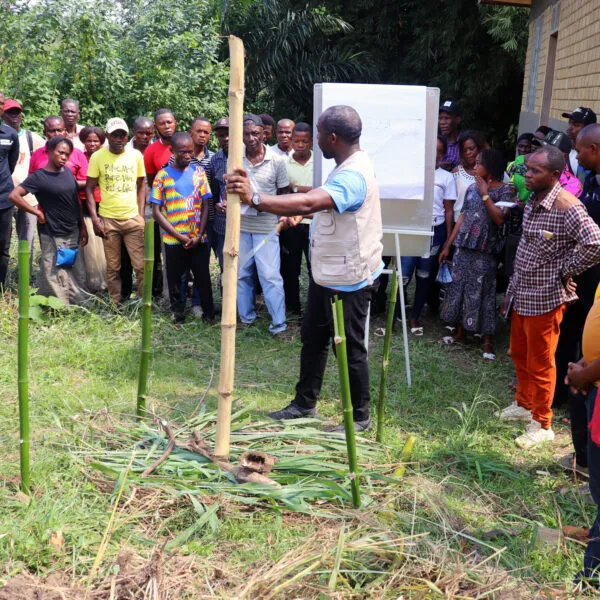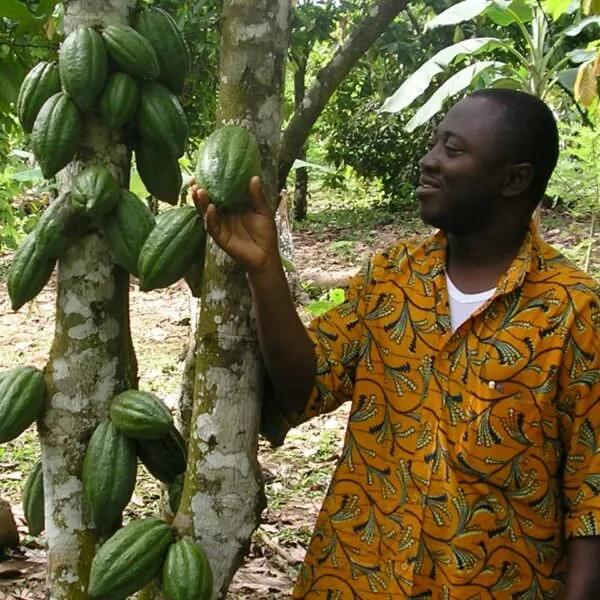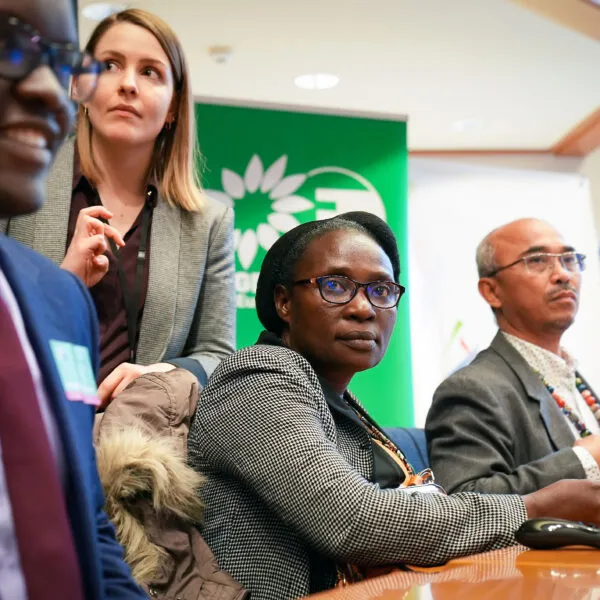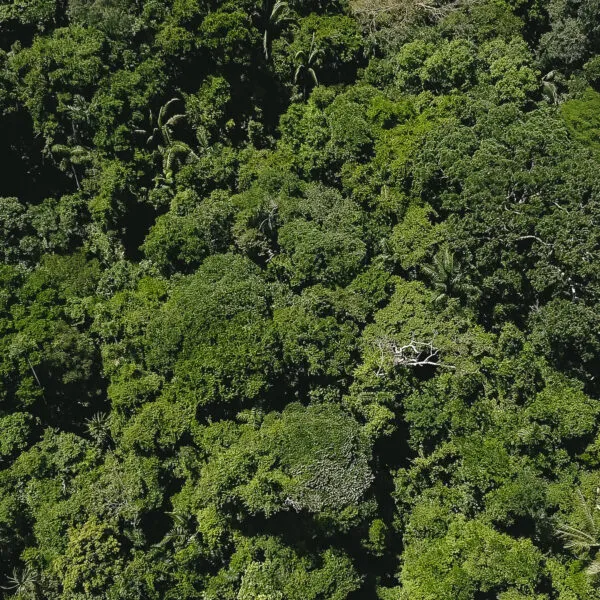In Ghana’s Sui River region, we work with communities to support regenerative agriculture, forest restoration, and thriving local economies—three objectives that are all interconnected. Located in the Western North region of the country, Sui River covers 382,000 hectares, including five forest reserves. At the same time, it is also one of West Africa’s most important cocoa-growing areas, which puts its forests in the crosshairs of agricultural conversion—a leading cause of deforestation.
To address this problem, it’s crucial to understand the small- and big-picture forces driving it. Beyond farm expansion, Sui River’s forests are also threatened by illegal logging, fuelwood harvesting, mining, and mineral extraction. These activities, in turn, are driven by a growing population, low cocoa yields on existing farms, and the lack of suitable land for cultivating crops. Climate change impacts—such as increased outbreaks of pests and diseases—only add to the challenge.
Communities lead the way
To encourage forest restoration in landscapes like Sui River over the long term, it’s crucial to help local communities earn a living income from standing trees. The Rainforest Alliance works toward this goal through an approach known as Integrated Landscape Management, which brings together farmers, forestry businesses, governments, companies, nonprofits, and others to collaborate on solutions that are as multifaceted as the ecosystems themselves.
In Sui River, we are providing valuable resources and expertise to local communities through a collaborative project known as LEAN, which stands for Landscapes and Environmental Agility across the Nation.
Regenerative agriculture boosts farm yields
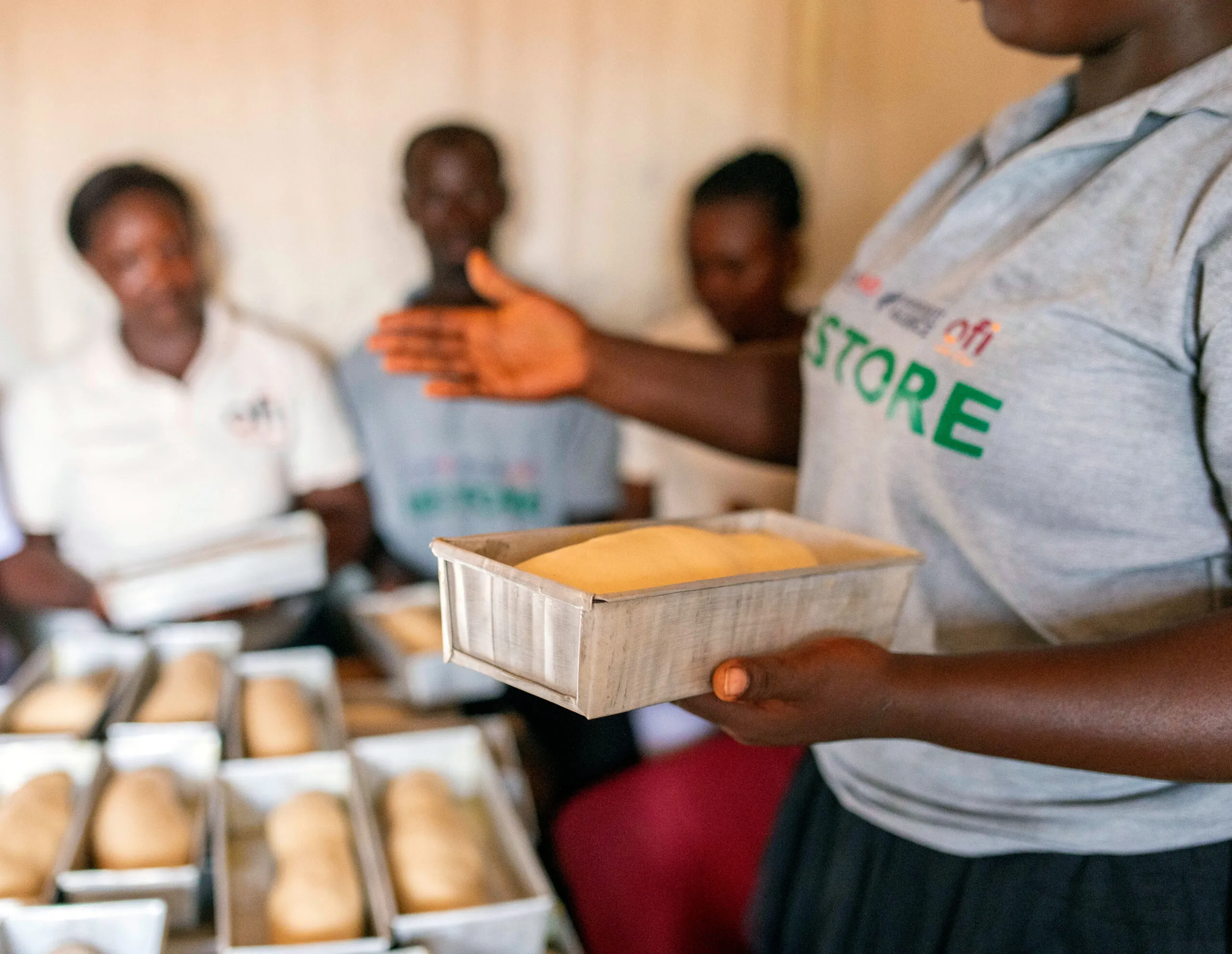
The project began with the establishment of three community-led Landscape Management Boards (LMBs), an approach we use all around the world. Representatives from 106 farming communities in Sui River joined forces with government officials, traditional leaders, cocoa traders, chocolate manufacturers, and the Rainforest Alliance to set priorities and develop a management plan for the entire region.
As elsewhere, climate change has led to increasingly severe weather patterns, which require Sui River’s communities to change how they cultivate cocoa. In response, farmers are learning to apply regenerative and climate-smart practices on their land, including planting shade trees, composting, and conserving water. Since 2022, 6,700 farmers have been trained in these techniques. Not surprisingly, farms that have adopted these practices have seen their productivity rise.
To further boost incomes and take pressure off forests, farmers are encouraged to diversify their incomes. But setting up a new business is not easy—it takes investment and technical knowledge. To help them succeed, the Rainforest Alliance and our partners have trained more than 183 small-scale farmers in beekeeping, snail farming, vegetable farming, bread-making, and piggery work, as well as providing start-up kits to about one-third of these individuals. This year, we plan to train an additional 370 small-scale farmers.
Planting the seeds of a healthier forest
Local forest restoration efforts are another top priority, particularly in an area where deforestation has led to water shortages. Across Sui River, farmers have planted more than 247,000 tree seedlings on cocoa farms, along riverbanks, and in formerly degraded areas. As a result, waterways that previously suffered from low water levels during the dry season have seen a dramatic improvement. “[Now,] the rivers flow all year, like they used to,” says Elijah Owusu-Cashiekrom, chairman of the LMB’s forest governance unit.
To ensure that these activities continue, local communities are acquiring the expertise to set up their own tree nurseries, plant tree saplings, and manage newly restored forest areas. To date, 45 farmers and 114 nursery workers and LMB representatives from eight communities have received this training, and 24 nurseries have been established.
Registering trees supports forest restoration
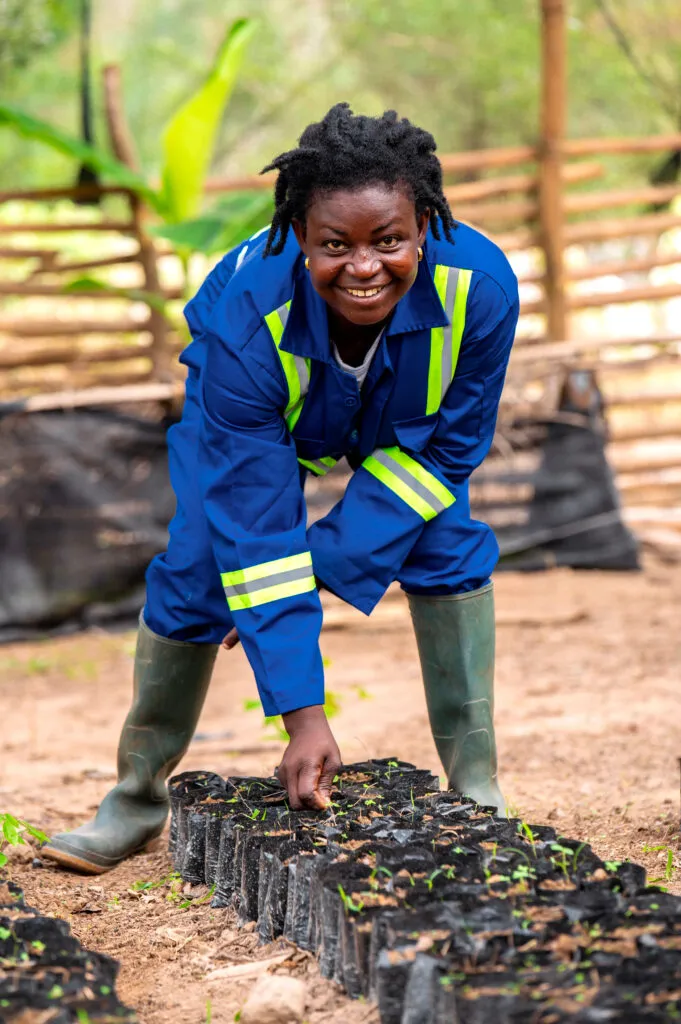
While tree-planting has positive impacts, these gains can be negated when outsiders swoop in, declare ownership of the new trees, and cut them down for profit. In fact, Ghana’s complex laws governing tree and land ownership have stymied forest restoration efforts in the past. To claim the trees on their farms, farmers must first register them with the forestry commission—a confusing process that deters many.
In a bid to simplify matters, individuals in Sui River have been trained to take a census of local trees using a community-based monitoring system. “Tree registration provides farmers with proof of ownership and eases anxiety around the government or loggers taking over the trees that they planted,” says Abena Dufie Woode, the project’s senior manager. This project is helping 170 farmers to register 8,782 trees in 18 communities across the Sui River landscape. It will also decreased damage on farms from tree felling, creating a powerful incentive for additional restoration efforts in the future.
By looking at the big picture but taking local action, our work in Sui River demonstrates the effectiveness of an Integrated Landscape Management approach that features rural communities in the starring role. Our job is to harness the power of our alliance and facilitate the efforts of local people as they transform their landscapes for the benefit of all.

